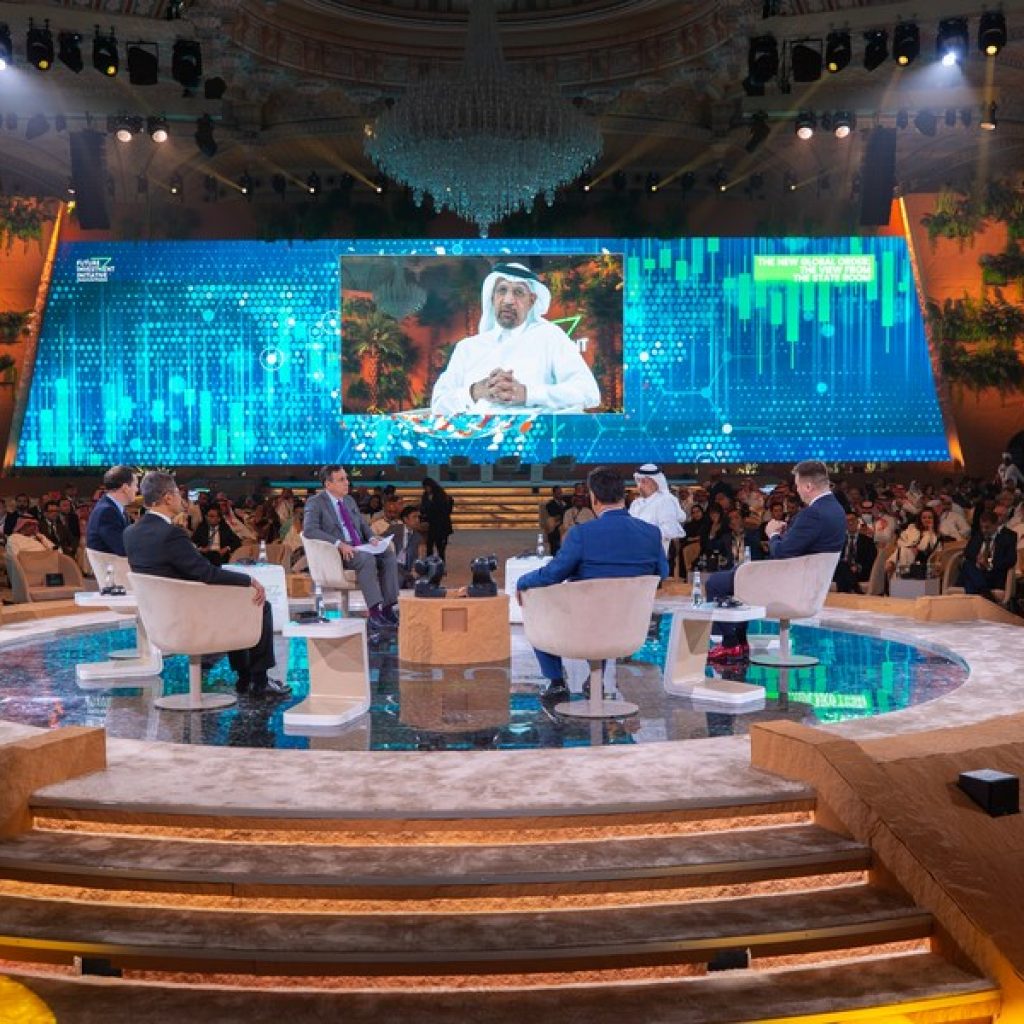The deals will also help investors launch new initiatives, bring job opportunities, and open regional offices in the kingdom…reports Asian Lite News
The Saudi Arabian Investment Ministry signed six Memorandums of Understanding (MoUs) on Tuesday at the annual Future Investment Initiative (FII) conference, the Saudi Press Agency (SPA) reported.
Covering energy, quality of life, defence industries, transportation, biotechnology and finance, the MoUs aim to improve capabilities and skills in the six sectors, address their major challenges, and benefit from best international practices, the SPA report said.
The deals will also help investors launch new initiatives, bring job opportunities, and open regional offices in the kingdom, it added.
More agreements and new investment deals are expected to be announced during the three-day event.

The 6th annual FII conference, held under the theme “Investing in Humanity: Enabling a New Global Order,” kicked off in Riyadh on Tuesday, gathering 6,000 policymakers, investors and scholars from across the globe. About 500 Saudi or foreign speakers from different sectors were expected to share their insights at the conference.
Speaking at the conference on Tuesday, Saudi Minister of Investment Khalid bin Abdulaziz Al-Falih warned of uncertainty of the global economy in 2023 because of high inflation and low purchasing power, noting trade policies have become unpredictable due to many factors such as high energy prices and climate change.
Placing the transformations in trade and supply chains in the context of globalization, Al-Falih said there are many opportunities at the level of technology and investment in the new global order.
Day two of the Future Investment Initiative (FII) event in Riyadh will again gather more than 6,000 participants – from policymakers, investors, entrepreneurs to young leaders – for discussions on topics ranging from geoeconomics to gaming, the Arab News reported.
During Tuesday’s sessions, delegates explored issues such as supply-chain disruption, the growing demand for travel since the lifting of pandemic restrictions, e-commerce, cybercrime, and the widespread problem of rising inflation.

